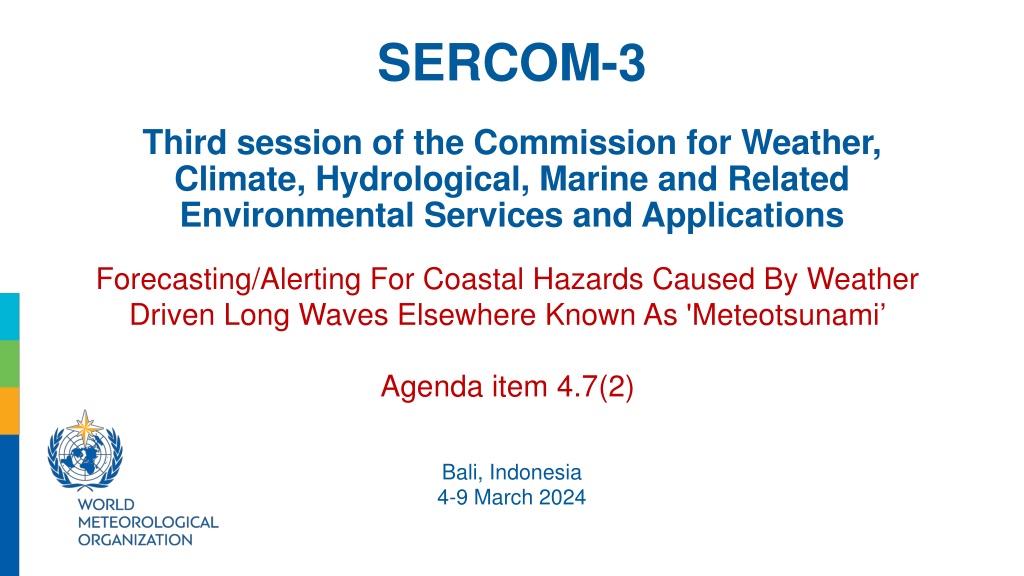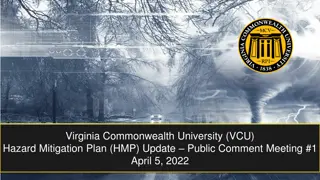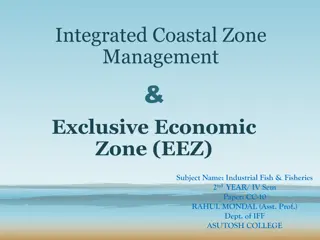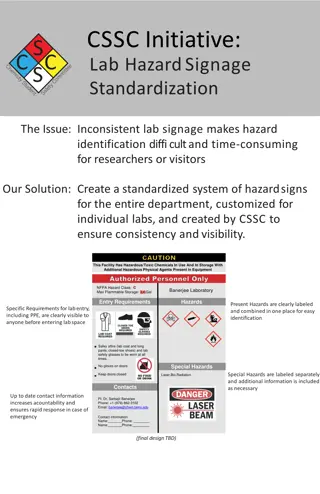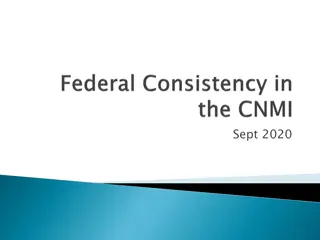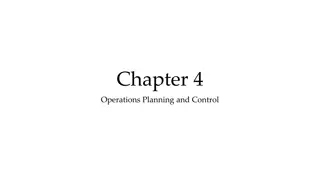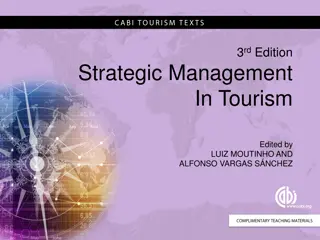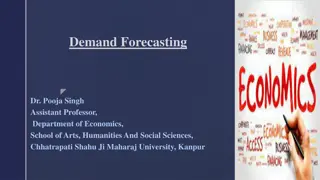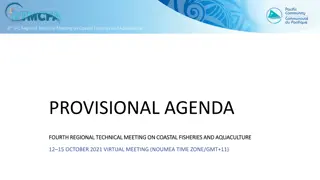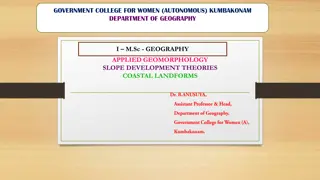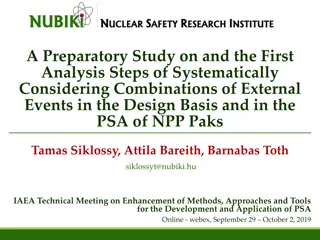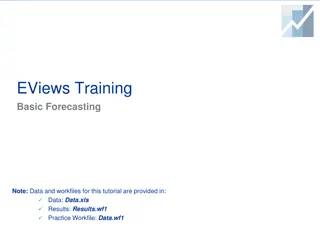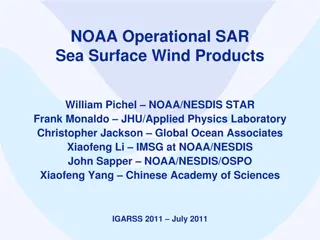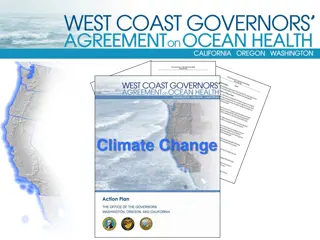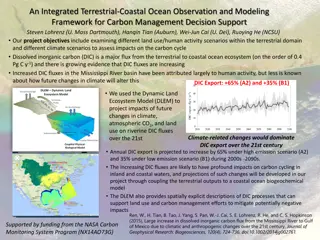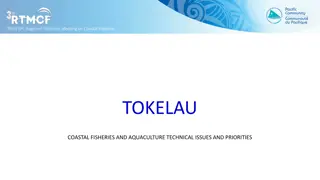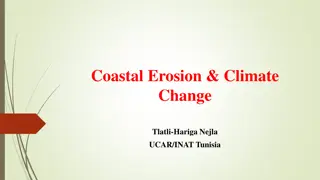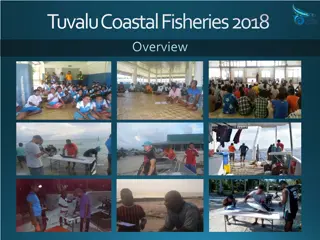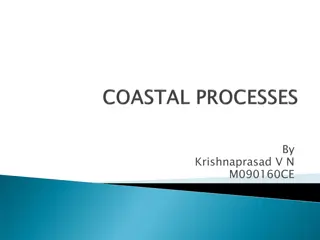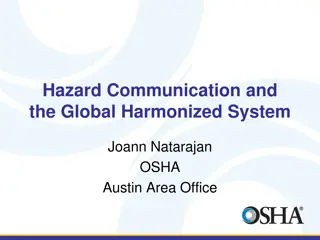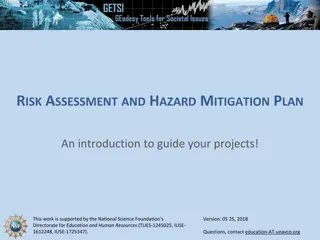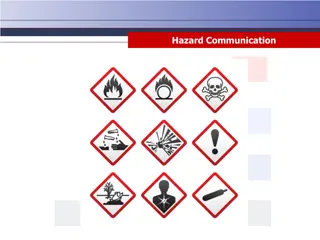Understanding Meteotsunamis: Coastal Hazard Forecasting and Alerting
The SERCOM-3 session focuses on the investigation and guidance regarding weather-driven long waves known as meteotsunamis, emphasizing the need for clarity in terminology and roles in forecasting coastal hazards. The draft decision outlines steps to address this issue and enhance coordination among NHMSs and tsunami warning centers to improve public understanding and preparedness.
Download Presentation

Please find below an Image/Link to download the presentation.
The content on the website is provided AS IS for your information and personal use only. It may not be sold, licensed, or shared on other websites without obtaining consent from the author. Download presentation by click this link. If you encounter any issues during the download, it is possible that the publisher has removed the file from their server.
E N D
Presentation Transcript
SERCOM-3 Third session of the Commission for Weather, Climate, Hydrological, Marine and Related Environmental Services and Applications Forecasting/Alerting For Coastal Hazards Caused By Weather Driven Long Waves Elsewhere Known As 'Meteotsunami Agenda item 4.7(2) Bali, Indonesia 4-9 March 2024
SC-MMO proposes: further investigation into the the use of the non WMO term among Members; and development of guidance material to ensure NHMS have a clear stance in issuing coastal inundation warnings to the public. WMO supports Members in delivering coastal services and WMO does NOT use the term Meteotsunami in terminology The terminology coined and used by academic circles and IOC-UNESCO Background Meteo Tsunami SC-MMO Chair serves as the Services Member of WMO-IOC JCB and is responsible for initiating discussion on coastal services that are under the mandate of WMO. The public Clarity is needed on the use of the term, and also roles and responsiblities for forecasting these weather driven long range waves The term can confuse the public, especially on the coastal impacts. Forecasting/Alerting For Coastal Hazards Caused By Weather Driven Long Waves
Forecasting/Alerting for weather driven long waves SC-MMO proposes Definitions and understanding of 'meteotsunami' Differences between a traditional tsunami and 'meteotsunami' Opportunities for clarifying roles and building collaboration Proposed draft guidance for NHMS Weather-driven tsunami-like MTs versus Volcanically driven tsunami-like MTs , versus usual tsunami In-depth examination of longwave disturbance (by weather forcing) NHMS focus on the impacts in the coastal area in their forecasts. The term 'meteotsunami' may create a misleading impression of its impact. Important for WMO to have a clear standing on the terminology in guiding NHMS. Supporting role from Tsunami Service Providers and National Tsunami Warning Centers Benefit to NHMS and oceanographic agencies from improved clarity on approaches to weather driven forecasts Overview of the weather forcing phenomon Role of NHMS Contributions from/role of tsunami warning centres It's crucial to clearly communicate to the emergency managers and to the public regarding impending impacts and avoid confusion over terms. More information can be found in SERCOM INF 4.7(2).
Draft Decision (1) 1. To request the Chair of the SC-MMO to: a) Investigate the use of the term of this phenomenon elsewhere known as 'meteotsunami', and whether it is deemed acceptable to WMO, and report the results of this investigation to a future SERCOM Session; and b) Lead, coordinate and provide technical advice and guidance in the preparation of Guidance material for NHMSs regarding coastal hazards caused by weather-driven long waves, considered tsunami-like (sometimes referred elsewhere as 'meteotsunami'), as outlined in the annex to this draft Decision, c) Consult with other relevant bodies as appropriate, including the UNESCO-IOC 2. To request the WMO Secretariat to provide assistance for the preparation of the guidance material in consultation with the chair of the SERCOM SC-MMO. 3. To further request the Chair SC-MMO, as the WMO Services Member on the WMO-IOC Joint Collaborative Board, to raise in discussion the use of the term 'meteotsunami' and its implications, to ensure common vocabulary is agreed between UN agencies.
Thank you. wmo.int
